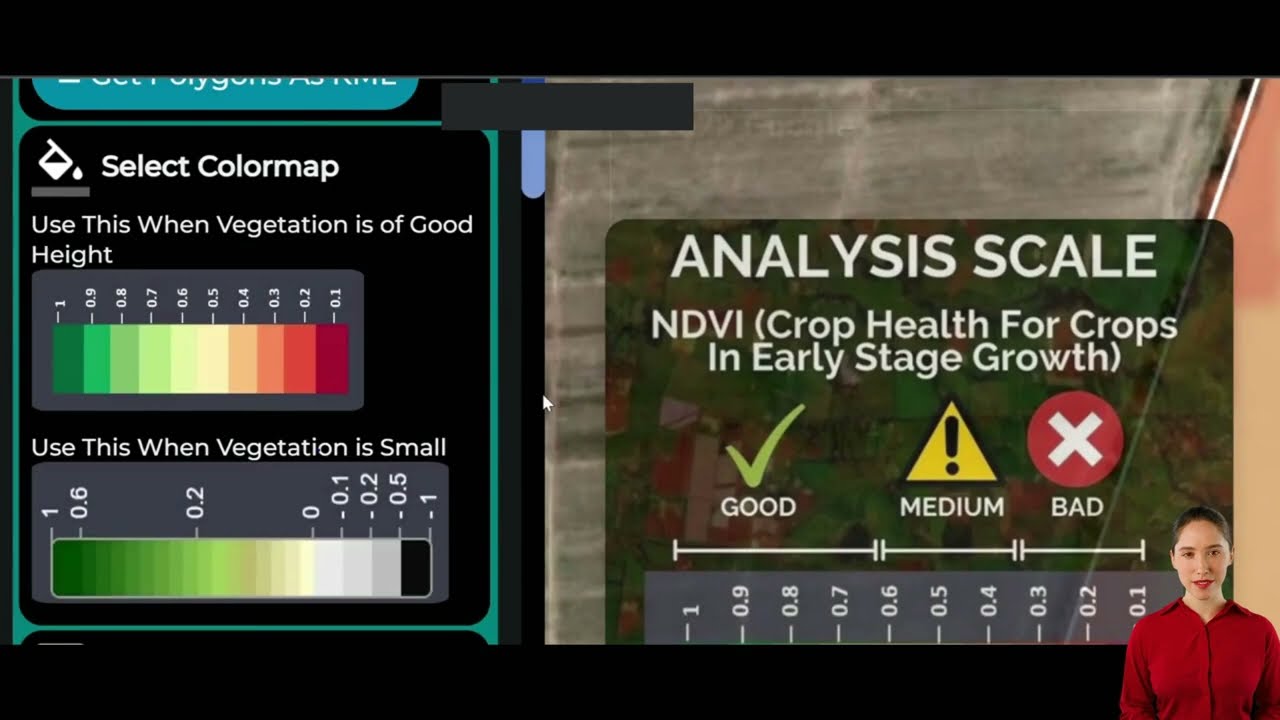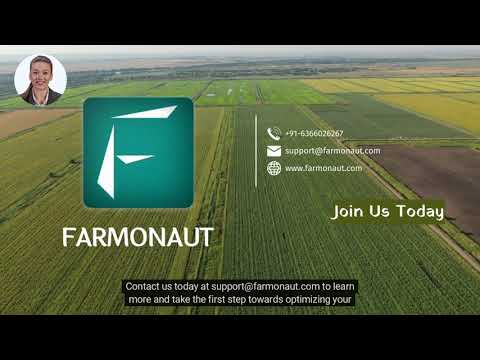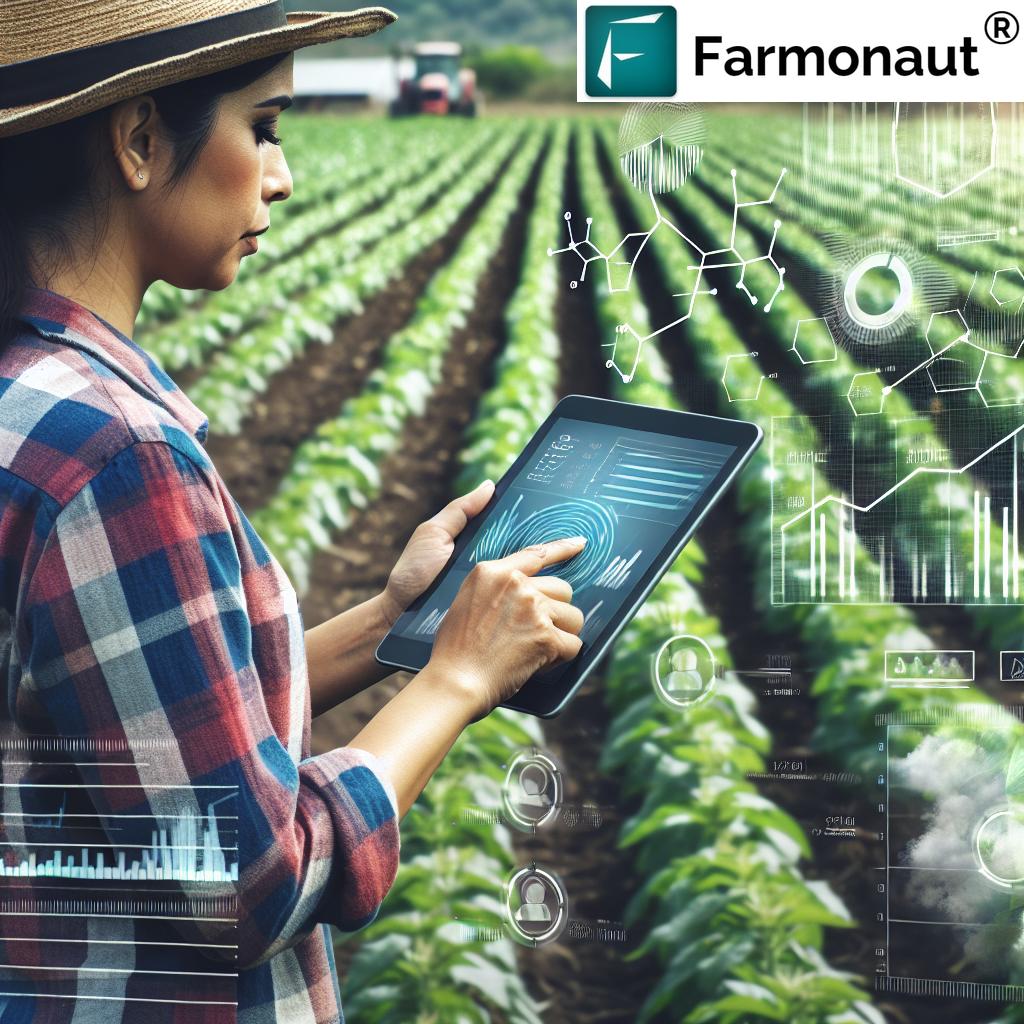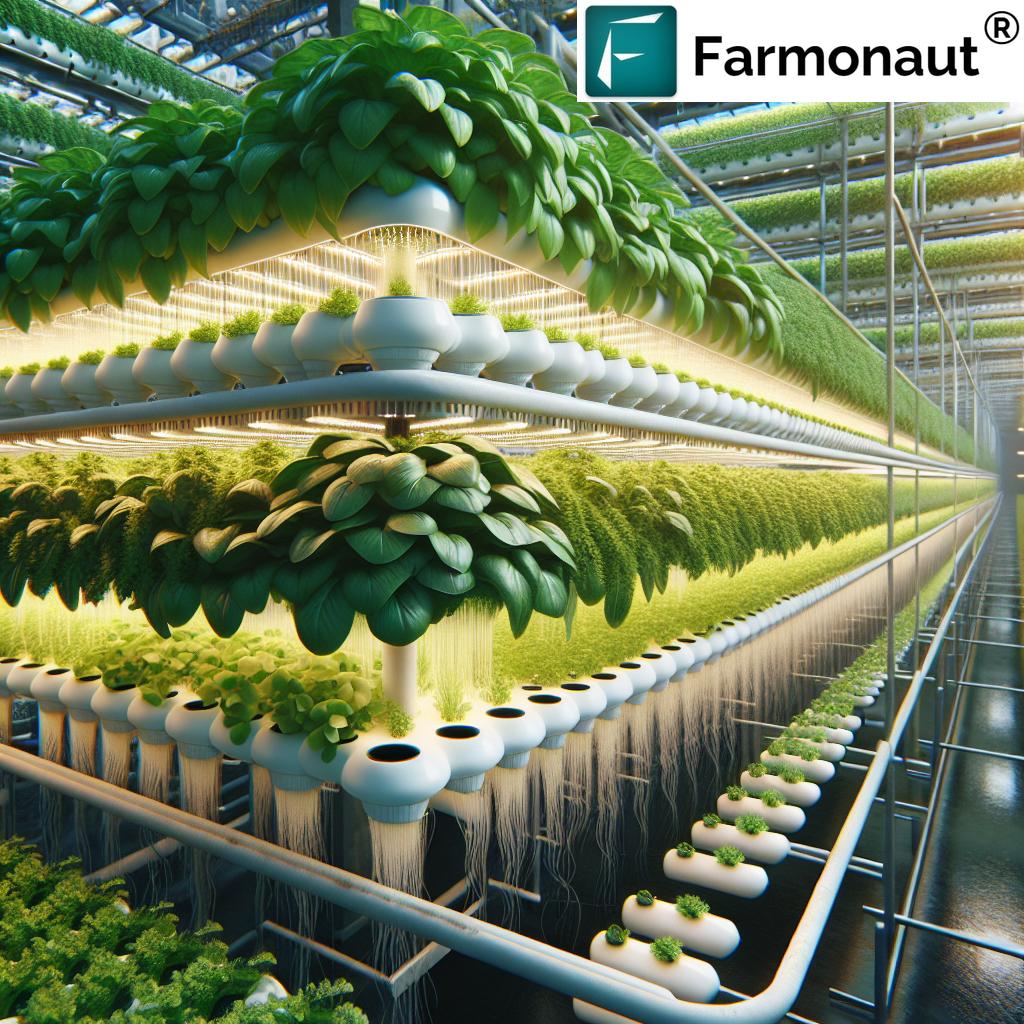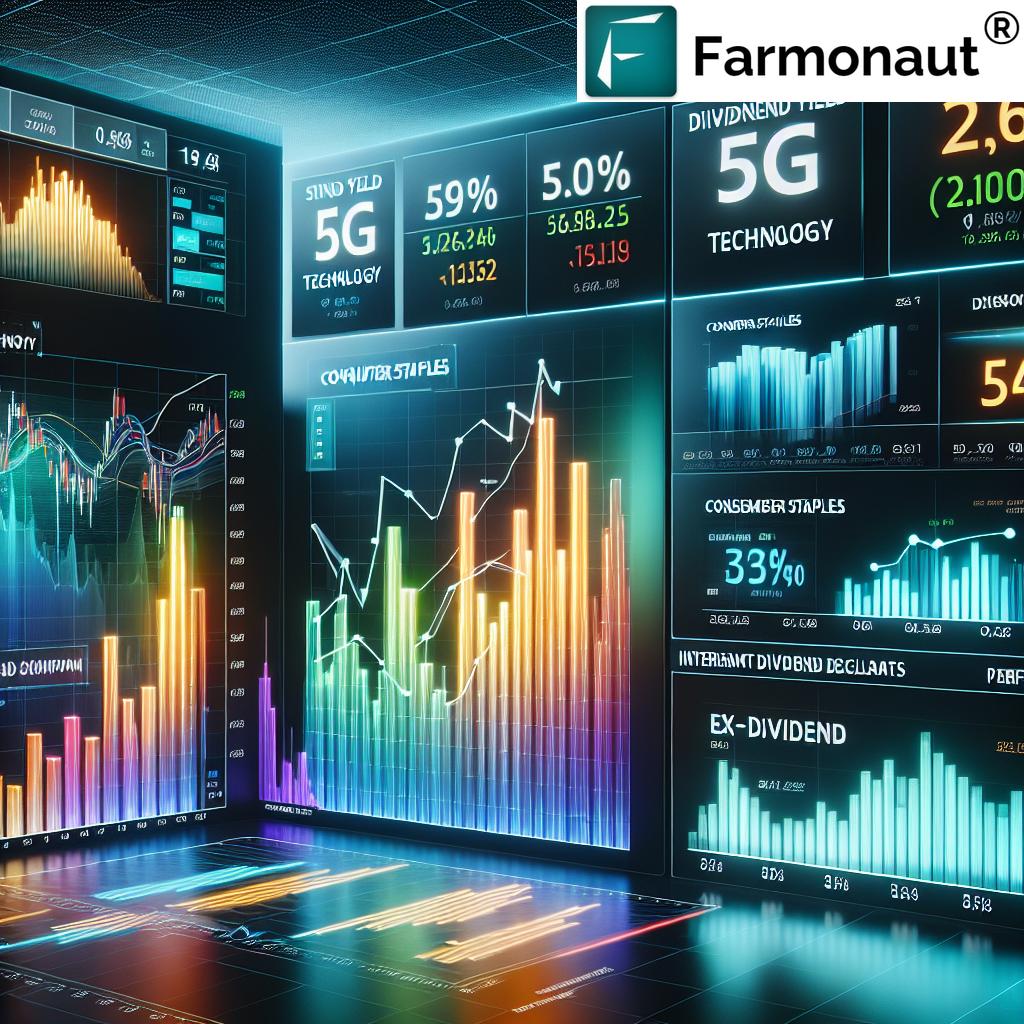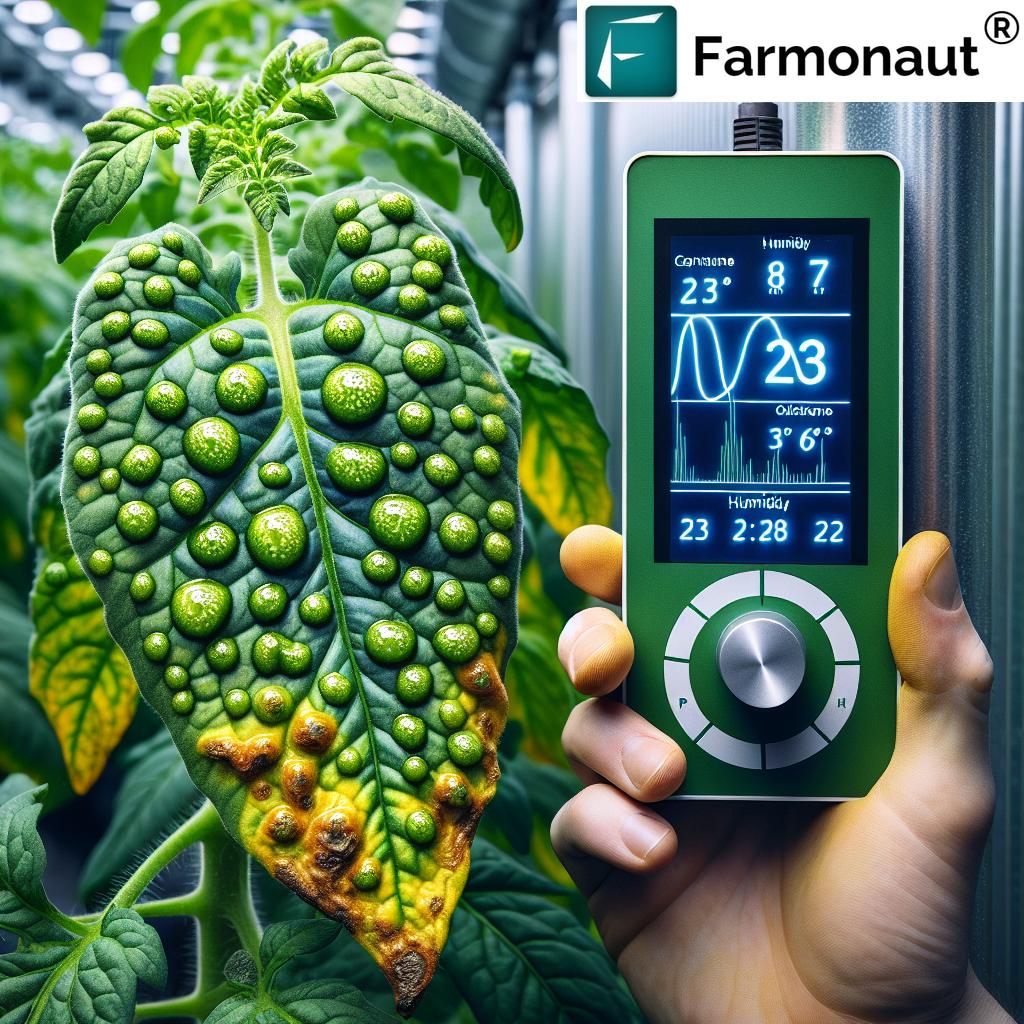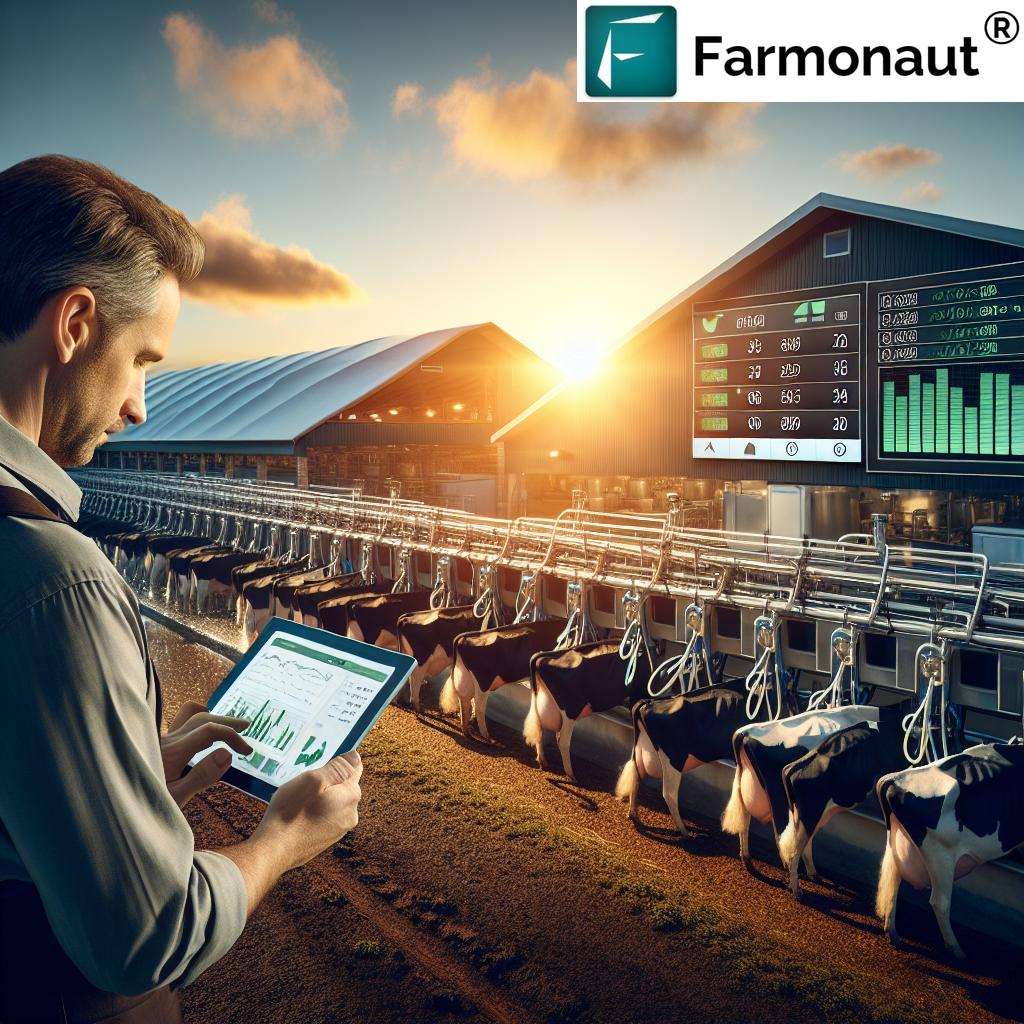Unlocking Retail Growth: Smart Logistics Strategies for Emerging Food Brands
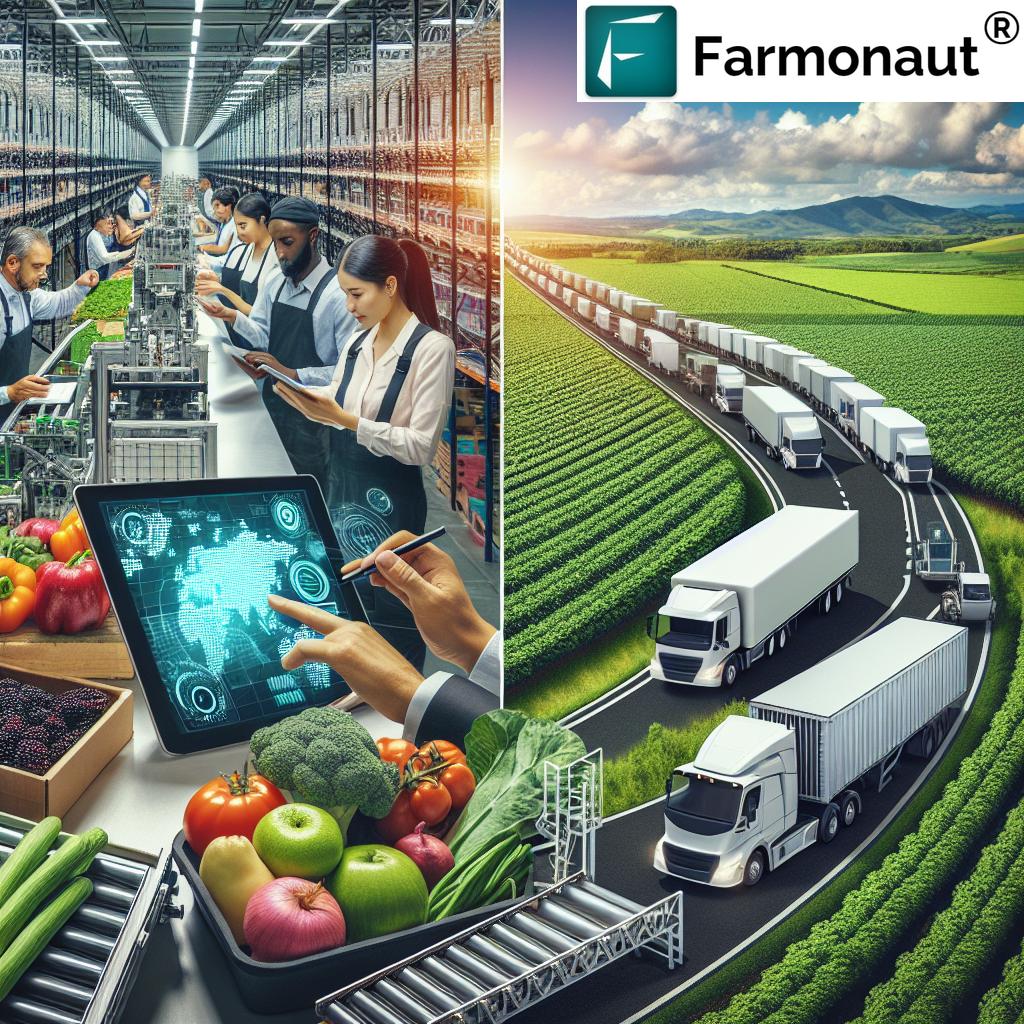
“Outsourcing logistics can reduce carbon emissions by up to 30% for emerging food brands in the agtech sector.”
In today’s rapidly evolving agtech landscape, emerging food brands face unique challenges in achieving retail growth and managing logistics efficiently. As we delve into this comprehensive guide, we’ll explore essential strategies for streamlining agribusiness operations and optimizing delivery costs. Our focus will be on why concentrating on sales metrics and outsourcing logistics can be game-changers for food startups. We’ll also uncover the hidden expenses of self-distribution and how specialized partners like Farmonaut can help reduce carbon emissions while scaling food production and distribution.
The Importance of Smart Logistics for Emerging Food Brands
For emerging food brands in the agtech sector, efficient logistics management is crucial for sustainable growth and success. Smart logistics strategies can significantly impact a brand’s ability to scale, reduce costs, and maintain product quality. Let’s explore why focusing on retail growth strategies and optimizing delivery processes is essential for these brands.
- Cost Efficiency: Streamlined logistics can help reduce operational costs, allowing brands to allocate resources to other critical areas of growth.
- Scalability: Efficient logistics systems enable brands to scale their operations smoothly as demand grows.
- Quality Control: Proper logistics management ensures that products maintain their quality throughout the supply chain.
- Customer Satisfaction: Timely and accurate deliveries contribute to positive customer experiences and brand loyalty.
Outsourcing Logistics: A Game-Changer for Food Startups
One of the most impactful decisions an emerging food brand can make is to outsource its logistics operations. This approach offers numerous benefits that can accelerate growth and improve overall efficiency.
Advantages of Outsourcing Logistics:
- Expertise: Specialized logistics partners bring industry knowledge and best practices to the table.
- Cost Savings: Outsourcing can reduce overhead costs associated with maintaining an in-house logistics team.
- Focus on Core Competencies: By delegating logistics, brands can concentrate on product development and marketing.
- Scalability: Professional logistics providers can easily adapt to changing demands and growth patterns.
- Technology Integration: Partners often offer advanced tracking and management systems that improve efficiency.
At Farmonaut, we understand the unique challenges faced by emerging food brands in managing their logistics. Our platform offers advanced solutions that can help streamline operations and reduce costs. Explore our web app to learn more about how we can support your logistics needs.

Streamlining Agribusiness Operations for Optimal Efficiency
Efficient agricultural product delivery is at the heart of successful agribusiness operations. By implementing smart strategies, emerging food brands can significantly improve their operational efficiency and reduce costs.
Key Strategies for Streamlining Operations:
- Implement Data-Driven Decision Making: Utilize analytics to inform inventory management and delivery routes.
- Adopt Automation: Incorporate automated systems for order processing and tracking.
- Optimize Warehouse Management: Organize storage facilities for maximum efficiency in order fulfillment.
- Leverage Real-Time Tracking: Use GPS and IoT devices to monitor shipments and improve delivery accuracy.
Farmonaut’s platform offers cutting-edge solutions for agribusiness operations, including real-time crop monitoring and AI-driven insights. Our API allows for seamless integration with existing systems, enhancing operational efficiency.

The Hidden Costs of Self-Distribution
While self-distribution might seem like a cost-effective approach for emerging food brands, it often comes with hidden expenses that can significantly impact profitability and growth potential.
Uncovering the True Costs:
- Vehicle Maintenance: Regular upkeep and repairs for delivery vehicles.
- Fuel Expenses: Fluctuating fuel costs can impact overall expenses.
- Labor Costs: Hiring and training delivery personnel.
- Insurance and Liability: Coverage for vehicles, drivers, and potential damages.
- Technology Investment: Implementing and maintaining tracking and management systems.
- Warehouse Expenses: Costs associated with storage facilities and inventory management.
By partnering with specialized logistics providers, emerging food brands can avoid these hidden costs and benefit from economies of scale. Farmonaut’s solutions are designed to help brands optimize their delivery processes and reduce overall logistics expenses.
Sustainable Food Supply Chain Management
In today’s environmentally conscious market, implementing sustainable practices in food supply chain management is not just beneficial—it’s essential. Emerging food brands that prioritize sustainability can gain a competitive edge while contributing to a healthier planet.
“Specialized partners like Farmonaut can help food startups reduce delivery costs by an average of 25% while scaling operations.”
Key Aspects of Sustainable Supply Chain Management:
- Reducing Carbon Emissions: Optimize routes and use eco-friendly vehicles to minimize environmental impact.
- Minimizing Food Waste: Implement efficient inventory management systems to reduce spoilage.
- Sustainable Packaging: Use eco-friendly materials for product packaging and shipping.
- Local Sourcing: Partner with local suppliers to reduce transportation distances and support local economies.
- Energy Efficiency: Implement energy-saving measures in warehouses and distribution centers.
At Farmonaut, we’re committed to helping food brands implement sustainable practices throughout their supply chain. Our platform offers tools for carbon footprint tracking and resource optimization, enabling brands to make environmentally conscious decisions.

The Power of Sales Metrics in Agtech
For emerging food brands in the agtech sector, focusing on the right sales metrics is crucial for driving growth and making informed business decisions. By tracking and analyzing key performance indicators (KPIs), brands can optimize their strategies and improve their bottom line.
Essential Sales Metrics for Agtech Brands:
- Customer Acquisition Cost (CAC): Understand the cost of gaining new customers to ensure profitable growth.
- Customer Lifetime Value (CLV): Measure the total value a customer brings over their relationship with your brand.
- Conversion Rates: Track the percentage of leads that turn into actual sales.
- Average Order Value (AOV): Monitor the average amount spent per transaction to identify upselling opportunities.
- Churn Rate: Keep an eye on customer retention and identify reasons for lost business.
- Sales Cycle Length: Understand how long it takes to close a deal and work on shortening this period.
Farmonaut’s platform integrates with various sales tracking tools, allowing brands to monitor these crucial metrics alongside their logistics data. This holistic approach enables more informed decision-making and strategic planning.
Efficient Agricultural Product Delivery Methods
Efficient delivery methods are crucial for emerging food brands to maintain product quality, reduce costs, and ensure customer satisfaction. Let’s explore some innovative approaches to agricultural product delivery that can give your brand a competitive edge.
Innovative Delivery Strategies:
- Last-Mile Optimization: Use AI-powered route planning to improve delivery efficiency in urban areas.
- Temperature-Controlled Logistics: Implement cold chain solutions to maintain product freshness during transit.
- Collaborative Delivery Networks: Partner with other local brands to share delivery resources and reduce costs.
- Subscription-Based Delivery Models: Offer regular, scheduled deliveries to improve customer retention and predict demand.
- Click-and-Collect Options: Provide customers with the flexibility to pick up orders from convenient locations.
Farmonaut’s logistics solutions can help emerging food brands implement these efficient delivery methods. Our platform’s real-time tracking and AI-driven insights enable brands to optimize their delivery processes continually.

Reducing Carbon Emissions in Food Logistics
As the global focus on sustainability intensifies, reducing carbon emissions in food logistics has become a priority for emerging brands. Implementing eco-friendly practices not only benefits the environment but can also lead to cost savings and improved brand reputation.
Strategies for Reducing Carbon Footprint:
- Electric and Hybrid Vehicles: Transition to low-emission vehicles for deliveries.
- Optimized Route Planning: Use AI algorithms to minimize travel distances and fuel consumption.
- Renewable Energy in Warehouses: Implement solar panels and other green energy solutions in storage facilities.
- Packaging Optimization: Reduce packaging waste and use sustainable materials.
- Carbon Offset Programs: Invest in environmental projects to balance out unavoidable emissions.
At Farmonaut, we’re committed to helping food brands reduce their carbon footprint. Our platform offers tools for carbon tracking and provides insights on how to optimize operations for sustainability. Explore our API Developer Docs to learn how you can integrate these features into your existing systems.
Customer Relationship Management for Food Brands
Effective customer relationship management (CRM) is vital for emerging food brands to build loyalty, drive repeat business, and gather valuable insights. A well-implemented CRM strategy can significantly contribute to retail growth and long-term success.
Key CRM Strategies for Food Brands:
- Personalized Communication: Use data insights to tailor marketing messages and offers to individual customer preferences.
- Feedback Loop: Implement systems to collect and act on customer feedback regularly.
- Loyalty Programs: Create reward systems that encourage repeat purchases and brand advocacy.
- Omnichannel Support: Provide consistent customer service across multiple platforms (e.g., social media, email, phone).
- Data-Driven Product Development: Use customer insights to inform new product launches and improvements.
Farmonaut’s platform can integrate with various CRM tools, allowing food brands to align their logistics data with customer information for a more holistic view of their business operations.
Balancing Quality Service with Cost-Effectiveness
For emerging food brands, striking the right balance between providing high-quality service and maintaining cost-effectiveness is crucial. This balance is key to sustainable growth and long-term success in the competitive agtech market.
Strategies for Achieving Balance:
- Lean Operations: Implement efficient processes to reduce waste without compromising quality.
- Strategic Outsourcing: Partner with specialized service providers for non-core activities to reduce overhead.
- Technology Integration: Invest in tools that improve efficiency and customer experience simultaneously.
- Value-Based Pricing: Set prices that reflect the quality of your products and services while remaining competitive.
- Continuous Improvement: Regularly review and optimize operations based on data and customer feedback.
Farmonaut’s solutions are designed to help food brands achieve this balance by providing cost-effective tools for efficient operations and quality management.
Leveraging Technology for Improved Scalability and Reach
In today’s digital age, leveraging technology is essential for emerging food brands to scale their operations and expand their market reach. The right technological solutions can streamline processes, enhance customer experiences, and drive growth.
Key Technologies for Scaling Food Brands:
- E-commerce Platforms: Implement robust online ordering systems to reach a wider customer base.
- Mobile Apps: Develop user-friendly apps for easy ordering and customer engagement.
- AI and Machine Learning: Use predictive analytics for demand forecasting and inventory management.
- Blockchain: Implement traceability solutions to ensure food safety and build consumer trust.
- Internet of Things (IoT): Utilize connected devices for real-time monitoring of product quality and logistics.
Farmonaut’s platform leverages cutting-edge technology to help food brands scale their operations efficiently. Our solutions integrate seamlessly with various tech stacks, providing a comprehensive approach to growth and scalability.
Comparison: Self-Distribution vs. Outsourced Logistics for Emerging Food Brands
| Factors | Self-Distribution | Outsourced Logistics |
|---|---|---|
| Initial Investment | High (vehicles, warehouses) | Low (minimal upfront costs) |
| Operational Costs | High (maintenance, labor, fuel) | Lower (pay for services used) |
| Scalability | Limited (requires significant investment) | High (easily adaptable to growth) |
| Carbon Emissions | Higher | Lower (with partners like Farmonaut) |
| Customer Relationship Management | Direct control | Managed through partner (potential for improved efficiency) |
| Technology Integration | Requires significant investment | Access to partner’s advanced systems |
Frequently Asked Questions
Q: What are the main advantages of outsourcing logistics for emerging food brands?
A: Outsourcing logistics offers several benefits, including reduced operational costs, access to specialized expertise, improved scalability, and the ability to focus on core business activities like product development and marketing.
Q: How can Farmonaut help reduce carbon emissions in food logistics?
A: Farmonaut offers tools for carbon footprint tracking and provides insights on optimizing operations for sustainability. Our platform can help brands implement more efficient routing, reduce waste, and make data-driven decisions to minimize environmental impact.
Q: What are some key sales metrics that emerging food brands should focus on?
A: Important sales metrics include Customer Acquisition Cost (CAC), Customer Lifetime Value (CLV), conversion rates, Average Order Value (AOV), churn rate, and sales cycle length. These metrics provide valuable insights into business performance and areas for improvement.
Q: How can emerging food brands balance quality service with cost-effectiveness?
A: Brands can achieve this balance by implementing lean operations, strategically outsourcing non-core activities, integrating efficient technologies, adopting value-based pricing strategies, and continuously improving based on data and customer feedback.
Q: What technologies should emerging food brands leverage for improved scalability?
A: Key technologies include e-commerce platforms, mobile apps, AI and machine learning for predictive analytics, blockchain for traceability, and IoT devices for real-time monitoring of product quality and logistics.
Conclusion
As we’ve explored throughout this comprehensive guide, unlocking retail growth for emerging food brands in the agtech sector requires a multifaceted approach. By focusing on smart logistics strategies, outsourcing to specialized partners, leveraging technology, and prioritizing sustainability, brands can position themselves for long-term success in a competitive market.
Remember, the key to sustainable growth lies in balancing quality service with cost-effectiveness, continuously optimizing operations, and staying attuned to customer needs and market trends. By implementing the strategies discussed, emerging food brands can streamline their agribusiness operations, reduce costs, and scale their production and distribution efficiently.
At Farmonaut, we’re committed to supporting emerging food brands in their journey towards growth and sustainability. Our advanced solutions in satellite-based farm management, AI-driven insights, and logistics optimization can help brands navigate the complexities of the agtech sector with confidence.
As you move forward, consider how partnering with specialized service providers like Farmonaut can help you focus on your core competencies while benefiting from cutting-edge technology and expertise in logistics and supply chain management. By making informed decisions and leveraging the right tools and partnerships, your brand can thrive in the ever-evolving landscape of the food industry.
Embrace these smart strategies, stay agile, and keep innovating. The future of food retail is bright for those who are prepared to adapt and grow strategically. Here’s to your brand’s success and sustainable growth in the exciting world of agtech!



